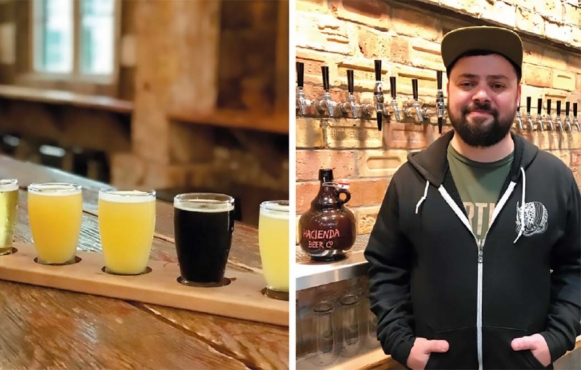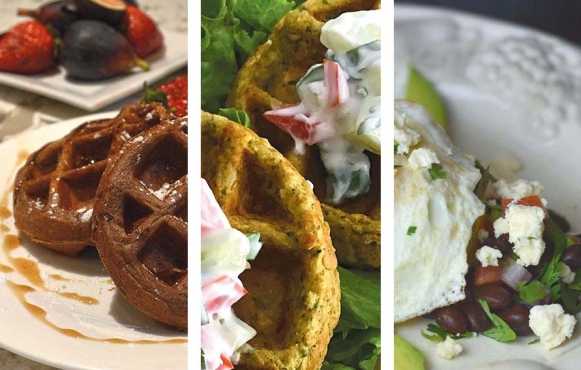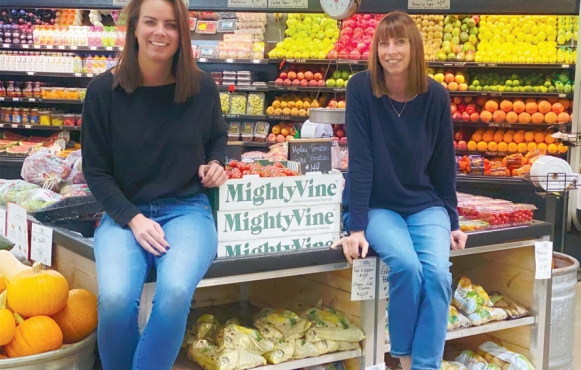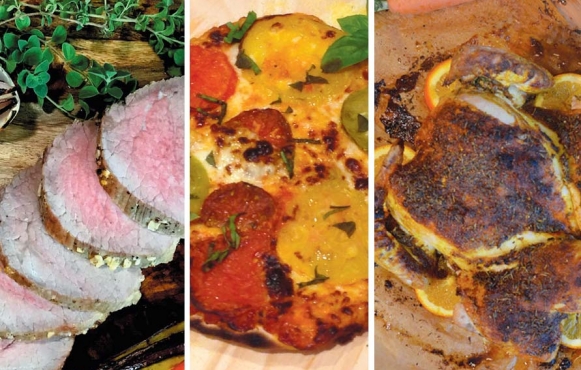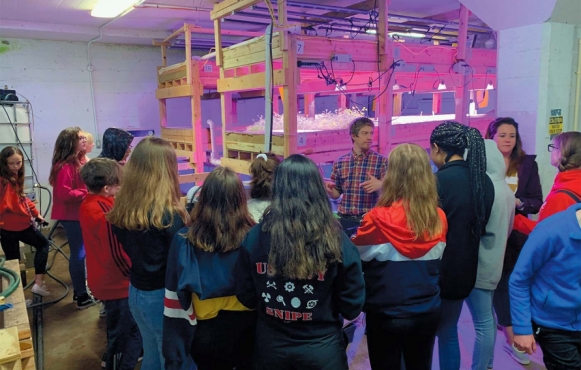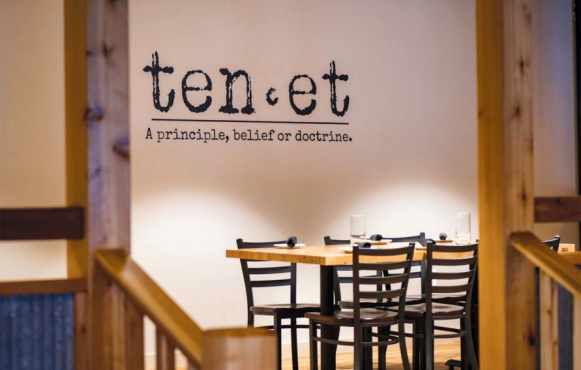Holiday/Winter 2019-20

IT'S A STRANGE FUTURE WE'RE STEPPING INTO
We subscribe to the Wall Street Journal and with it comes great stories and, being a former sports editor, I appreciate its sports section even though it’s only one page and often only has one story. WSJ has a healthy approach towards the sports world that tends to be overblown.
No, this is not a sports column but rather one that addresses a special section of WSJ that appeared recently. The newspaper periodically dedicates some pages to what it calls “The Future of Food.” This one was particularly interesting and was initially quite disconcerting when I saw the headline on the front page: “A Taste of Al.”
None of us want to see a future like that, but I was immediately relieved when my wife Leslie reminded me that it was actually “AI” or Artifi cial Intelligence.
The story went into how large communities are putting Artificial Intelligence to work in reducing the amount of time that is often needed to construct effective recipes, based on alreadyestablished successful algorithms. Still, it didn’t stop one such AI project at MIT aimed at creating new pizza toppings from concocting an Italian sausage, jam and shrimp pizza. I don’t want that computer program driving my car.
But as you delve further into the WSJ section, you come to an issue that has become a particularly hot topic in our part of the country. Wisconsin is a land of strong traditional values. This is America’s Dairyland and home to that ever-confusing restaurant known as a supper club.
No, you don’t have to be a member to go to the club, but it helps that you come with a hankering for comfort food. Menus have developed some diversity over the years, but there aren’t many that don’t have meat and potatoes at their core.
We like meat and we like dairy products around here, so all this talk of late about fake meat and what constitutes milk is a little troubling. The debate carried into the WSJ Future of Food section on a couple of fronts.
First, WSJ conducted a debate at its Global Food Forum about what constitutes milk and who is allowed to put “milk” on its label. Based on the photo that went with the story, it would appear not everyone was happy with how it went.
Second, is McDonald’s really going to have a meatless burger? The answer to that one is already yes, since it is sampling one in Canada before it would cross over the border into cattle country.
I know I have little say in this, especially from a guy who couldn’t differentiate between an L and a l, but I do fi nd it a bit annoying that the plant-based drinks continue to have desires to use the term milk.
At least here in Wisconsin, we were taught at an early age that milk is something that comes from a cow. We take a lot of pride in that, and I feel pretty safe in expressing my opinion since we don’t grow a lot of almonds around here. Just to be clear, as for the growing market of goat milk, I have no problem with goat farmers using the term milk.
I love orange, grapefruit, tomato juice. Emphasis here is on juice. By the way, Wisconsin is the largest cranberry producer in the country and yet Ocean Spray calls its product juice and it seems to be doing well. I think almond juice would work just fine.
On the other hand, our dairy farmers are struggling. I think they should have exclusive rights to the term milk. Oh yes, goat farmers, too.
As for the fake meat, anything that has to disguise itself as meat in order to get people to eat it has a marketing problem. Let’s see what the Canadians think.
Jon Gast
Co-Owner/Editor of Edible Door





